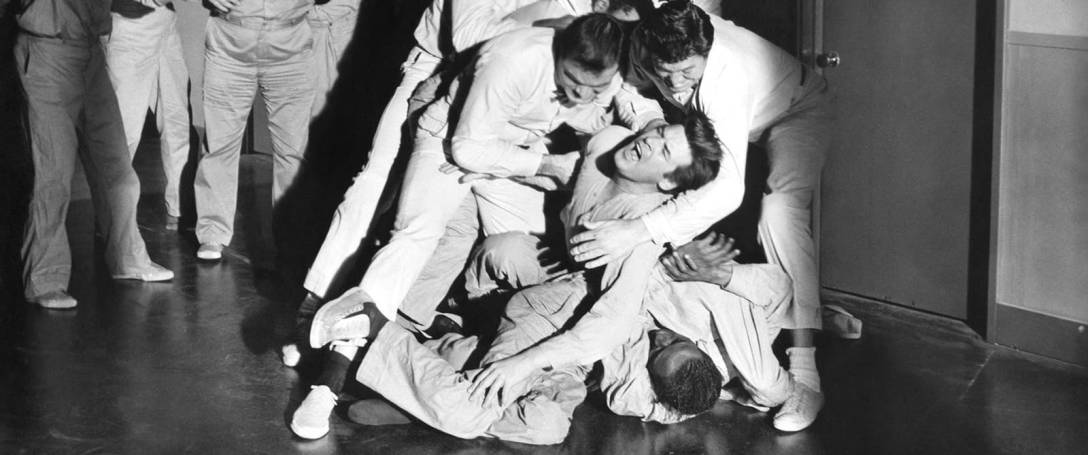Written and directed by Samuel Fuller
Samuel Fuller’s brand of pulp filmmaking also has some gristle in it. His twisted stories may run a bit amok and go for big, short-lived impressions rather than leave an indelible mark through a cohesive story well told, but those bursts of the sensational, the macabre, the disturbing and disturbed, they’re their own virtue.
In the The Naked Kiss, released the year following Shock Corridor, those moments redeem the movie as a whole, but in Shock Corridor, they can’t quite keep things afloat, as a journalist hatches a plan to admit himself to a mental hospital to solve a murder and win a Pulitzer Prize for the effort. Wild gambit on paper, even wilder in praxis.
Peter Breck is Johnny Barrett, the intrepid and enterprising journalist. His editor is somehow on board with this terrible idea, and his girlfriend Stacy (Constance Towers, furiously despairing) is wrecked with fear that he actually will lose his mind in there. Her intuitions are correct, the only question is whether Barrett will solve the mystery before it’s too late.
Fuller’s blistering intensity has never seemed more at home than in a mental hospital. As unpredictable as the cast of characters, so is his storytelling at times, and it’s thrilling. Fuller plays with special effects to show us Barrett’s mental health deteriorating, for example, and it’s cartoonish, with a miniature version of Stacy hovering above his head, tormenting him with talk of infidelity.
This is to say he swings for the fences and there’s enough audiovisual carnage to jolt you in your seat. There’s only 30 minutes worth of plot in Shock Corridor, however, so these moments of electric filmmaking become the main draw, with the scenes in between muddled walking in circles. Feeling stuck in a mental hospital sounds horrific on paper (and therefore promising for a movie), but it’s more down to tedium for large parts of Shock Corridor.
That might be down to Johnny’s wardmates falling flat. Fuller’s depiction of mental illness is not winning any prizes, as he leans into shorthand depictions of what ails patients and uses them as wind-up toys that he cranks the chain of and lets loose to create some spectacle once in a while. Some of these characters do have shock factor, like a Black patient who believes himself a Ku Klux Klan leader but again, that’s all there is to him: shock factor.
Fuller and cinematographer Stanley Cortez do put together a stunning visual presentation using only harsh shadows, carving up rooms and lending real drama to Breck’s face as he tightens and slackens it like a pulley system lowering himself down into madness.
Shock Corridor is more evocative than convincing, with some electrifying sequences not enough to charge a current through this story of journalistic misadventure that squanders a provocative premise to settle for pulp fiction that isn’t saved by the considerable craftsmanship of those working on it.
